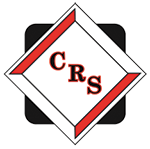In the world of healthcare data management, clinical data abstraction plays a critical role in ensuring accuracy, compliance, and quality improvement. Whether you’re working with CathPCI, Chest Pain – MI, STS, NSQIP, or other registries, having a skilled clinical data abstractor is essential for maintaining high-quality healthcare reporting.
So, what makes a good clinical data abstractor? What training and skills are needed to succeed in this field? Let’s dive in.
What is Clinical Data Abstraction?
Clinical data abstraction is the process of reviewing, extracting, and validating medical data from patient records for submission to healthcare registries, research databases, or performance improvement programs.
Top companies like Cardiac Registry Support provide data abstraction services to hospitals and healthcare organizations, ensuring accurate reporting and regulatory compliance.
But what does it take to be an excellent clinical data abstractor?
Key Skills of a Successful Clinical Data Abstractor
1. Attention to Detail & Accuracy
🔍 A single mistake in data abstraction can lead to compliance issues or incorrect reporting. A good abstractor must:
✔ Have keen attention to detail
✔ Ensure 100% accuracy in extracted data
✔ Cross-check and validate information against registry definitions
2. Strong Knowledge of Medical Terminology & Coding
📑 Understanding ICD-10, CPT codes, and medical terminologies is crucial. Many registries have strict definitions, so expertise in clinical documentation is a must.
3. Experience with Healthcare Registries
🏥 Familiarity with national registries like:
✅ NCDR (CathPCI, Chest Pain – MI, AFib)
✅ STS (Society of Thoracic Surgeons)
✅ NSQIP (National Surgical Quality Improvement Program)
✅ Get With The Guidelines (GWTG) for stroke & heart failure
is key to success.
4. Understanding of EHR & Data Systems
💻 Clinical data abstractors must navigate Electronic Health Records (EHRs) such as:
✔ Epic
✔ Cerner
✔ Meditech
✔ Allscripts
5. Analytical & Problem-Solving Skills
📊 Abstractors often need to interpret ambiguous documentation, apply registry rules, and clarify missing information with physicians or data teams.
6. Time Management & Productivity
⏳ In high-volume abstraction roles, efficiency is key. Abstractors should be able to meet tight deadlines while maintaining high accuracy rates.
7. Strong Communication & Collaboration
💬 A clinical data abstractor frequently collaborates with:
✔ Quality improvement teams
✔ Physicians & healthcare staff
✔ Registry vendors & auditors
Clear communication ensures data integrity and compliance.
How to Get Training in Clinical Data Abstraction
1. Certification & Courses
🔹 Training programs like Data Abstractor Academy provide structured education on abstraction skills.
🔹 Industry certifications from AHIMA, ACDIS, and NAHQ can improve credibility.
2. Hands-on Experience & Internships
💼 Many top abstraction companies, such as Cardiac Registry Support and Quality Health Data, offer on-the-job training for new abstractors.
3. Staying Updated on Registry Changes
📢 Guidelines for NCDR, STS, and other registries change frequently. Abstractors should:
✔ Attend conferences & webinars
✔ Join healthcare registry networks
✔ Follow CMS & AHA updates
Why Investing in Clinical Data Abstractor Training Matters
Hospitals and healthcare systems rely on data for decision-making, performance improvement, and compliance. A well-trained data abstractor ensures that:
✅ Registry submissions are accurate & complete
✅ Quality metrics reflect actual patient care
✅ Healthcare organizations meet accreditation & reimbursement requirements
Partner with Cardiac Registry Support for Expert Training
At Cardiac Registry Support, we provide comprehensive training programs for clinical data abstractors specializing in cardiac, stroke, and surgical registries.
🔹 Want to advance your career in data abstraction?
🔹 Need high-quality training for your team?
📞 Contact us today or visit www.cardiacregistrysupport.com to learn more!
🚀 Join the best in healthcare data abstraction & start making an impact today!

